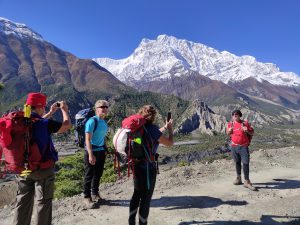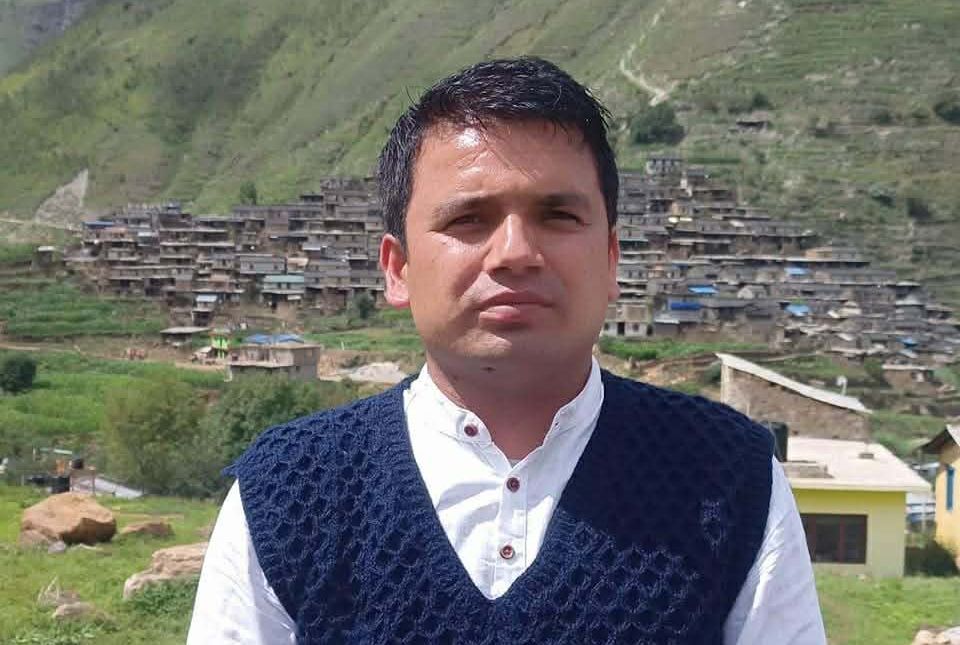
Corrupt politics and bad governance have been persistent issues in Nepali politics for many years. The political leaders, instead of serving the people, have been using their positions for their own personal gain. This has resulted in widespread corruption, where public funds are misused, contracts are awarded to unqualified individuals, and laws are flouted with impunity. Corruption has deeply ingrained itself in the system, and it has become increasingly difficult to root it out.
The present CPN-Maoist Centre-led government is still failing to create hope and confidence among citizens. This government is formed just after the national elections, so naturally, people expected much more reform, correction, and delivery from the new government. But, unfortunately, until yet, Prime Minister Pushpa Kamal Dahal cannot assure what it wants to accomplish in which ways and how the government functionaries will be mobilised to address the pertinent challenges of the nation. Prime Minister Dahal is wasting valuable time on filthy political games of parliamentary practices.
Now, it’s high time the leaders in Nepali politics corrected themselves and focused on national development and other people’s expectations.
Need for accountability and transparency
Bad governance is a major concern in Nepali politics as the political leaders have failed to provide basic services to the citizens. There is a lack of accountability and transparency in the government, which has resulted in poor management of public resources.
The political leaders have also been unable to address the pressing issues facing the country, such as poverty, unemployment, and poor infrastructure. The lack of effective leadership and governance has also led to widespread social unrest and instability, further hindering the country’s development and progress.
Nepali politicians have a long history of putting their personal interests ahead of the nation. For instance, much-needed development projects like building roads, bridges and airports have been delayed for years because of political wrangling. The leaders have been more concerned about securing their own positions and enriching themselves, rather than working towards the betterment of the country and its citizens.
Moreover, corruption is rampant in Nepali politics. Politicians are involved in the embezzlement of public funds and abuse of power, which has seriously hindered the economic development of the country.
The lack of accountability and transparency in the political system has resulted in a lack of trust among the citizens and has also made it difficult for foreign investors to have confidence in the country’s business environment.
Need for learning from failures

Major actors in Nepali politics have been unable to come to a consensus on important issues affecting the country’s economy. For example, the government has been unable to implement much-needed reforms in the energy sector and investment areas.
These not only affect the daily lives of citizens but also has a negative impact on the country’s businesses and industries, causing significant economic losses. Politicians have failed to prioritise national interest and economic development.
The lack of seriousness and commitment towards these issues is one of the main reasons why the country has failed to progress and improve the lives of its citizens. Until the politicians start putting the nation’s interests first, the country will continue to struggle with economic and social issues.
The failure of Nepali politics to control the high prices of essential goods and services has been a major source of concern for the citizens. Despite efforts to curb inflation, the prices of basic necessities such as food, fuel, and medicine continue to rise, putting a strain on the already struggling households. The government’s inability to address this issue effectively has resulted in widespread poverty and hardship for many citizens.
The corrupt bureaucracy in Nepal has been a hindrance to the country’s development and progress. The bureaucrats are known for demanding bribes, engaging in nepotism, and ignoring the needs of the citizens.
The corruption has resulted in inefficiencies in the delivery of public services and has also made it difficult for businesses to operate in the country. The inability of Nepali politics to address this issue has resulted in widespread frustration and disillusionment among the citizens, further eroding the trust in the political system.
What’s next?

To maintain economic development, increase investment and accelerate good governance, the current Dahal-led government can take several steps and set itself as an example in Nepali politics.
Firstly, it is important to create a stable and predictable business environment that will attract foreign investors. This can be achieved by implementing transparent and effective regulations, streamlining the bureaucracy, and reducing corruption. For instance, countries like Singapore and South Korea have implemented effective measures to curb corruption, and as a result, they have become attractive destinations for foreign investment.
Another key factor in maintaining economic development and increasing investment is prioritising infrastructure development. This includes building roads, bridges, airports, and other essential facilities that are required for business and commerce.
The government can also invest in education and healthcare to create a skilled workforce that can support the country’s economic growth. For example, countries like China and India have seen significant economic growth after investing heavily in infrastructure and human capital.
Nepali politics must address the issues of poverty and unemployment by creating job opportunities and improving the standard of living for the citizens. This can be achieved by promoting entrepreneurship and small businesses, as well as investing in agriculture and rural development. For instance, countries like Bangladesh and Ethiopia have seen significant economic growth by focusing on the development of small businesses and rural areas. The government must also ensure that the benefits of economic growth are inclusive and reach the most vulnerable sections of society.
It is essential for major actors in Nepali politics to focus on the needs and demands of the people if it wants to maintain economic development and promote good governance. The government must prioritise the basic needs of the citizens such as food, shelter, healthcare, and education, and take necessary steps to address these issues. By doing so, the government will create a more stable and supportive environment for the citizens, which in turn, will lead to greater well-being and happiness.
Moreover, the government must avoid wasting time and resources on unnecessary factors that do not directly benefit the citizens. Instead, it should concentrate on the key issues that affect the lives of the people, such as poverty, unemployment, and the high cost of living. By focusing on these priorities, the government will be able to create real and tangible benefits for the citizens and earn their trust and support.
























